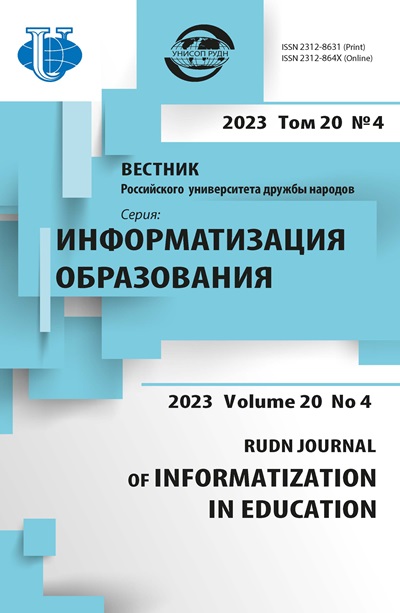Issue
Title
Authors
|
Aslanov R.E., Shunina L.A., Grinshkun A.V., Bolshakov A.A. |
|
Aslanov R.E., Bolshakov A.A., Grinshkun A.V. |
|
Grigoriev S.G., Grinshkun V.V., Levchenko I.V., Zaslavsky O.Y. |
|
Polyanskaya A.V. |
|
Anikanova K.I. |
|
Kornilov V.S. |
|
Tsvetkova A.V. |
|
Zaslavskaya O.Y., Galeeva N.L. |
|
Grigoriev S.G., Grinshkun V.V. |
|
Khozhaeva T.S. |
|
Zaslavskaya O.Y. |
|
Zaslavskaya O.Y. |
|
Levchenko I.V. |
|
Kamyanetsky S.Y. |
|
Bidaybekov E.Y., Kornilov V.S., Kamalova G.B., Akimzhan N.S. |
|
Bazhenova S.A. |
|
Bubnov V.A. |
|
Levchenko I.V. |
|
Zaslavskaja O.J., Braga A.N. |
|
Azevich A.I. |
|
Nardyuzhev V.I., Nardyuzhev I.V., Marfina V.E., Kurinin I.N. |
|
Zhemchuzhnikov D.G. |
|
Glizburg V.I. |
|
Levchenko I.V. |
|
Kornilov V.S. |
|
Beshenkov S.A., Shutikova M.I., Ryzhova N.I. |
|
Abdiev K.S., Umerbaeva G.K., Tursinbekova A.E. |
|
Ignatova O.G. |
|
Kartashova L.I., Levchenko I.V., Pavlova A.E. |
|
Gromov A.I., Kuryshev E.S. |
|
Kuznetsov A.A., Grigorjev S.G., Grinshkun V.V., Zaslavskaja O.J., Levchenko I.V. |
|
Prokopova N.S. |
|
Trofimets E.N. |
|
Aldiyarov K.T., Bidaybekov E.Y. |
|
Aslanov R.M., Ignatova O.G., Nizhnikov A.I. |
|
Abramov A.V. |
|
Ignatenko N.V. |
|
Nurbekova Z.K., Aimicheva G.I. |
|
Gerbekov H.A., Halkecheva I.T. |
|
Kartashova L.I., Levchenko I.V., Pavlova A.E. |
|
Kornilov V.S., Zaryankin V.A. |
|
Belikov V.V. |
|
Lezhnina M.V. |
|
Sungurova N.L. |
|
Aldiyarov K.T., Bidaybekov E.Y. |
|
Goryushkin E.I. |
|
Puchkova E.S. |
|
Junov S.V., Feshina E.V. |
|
Zaslavskaya O.Y., Levchenko M.S. |
|
Morozova S.V. |
|
Kartashova L.I., Levchenko I.V., Pavlova A.E. |
|
Sadovnichy U.V., Turkmenov R.M. |
|
Kartashova L.I., Levchenko I.V., Pavlova A.E. |
|
Goryushkin E.I. |
|
Lozhakova E.A. |
|
Galeeva N.L., Zaslavskaya O.Y. |
|
Bidaybekov E.Y., Kaskatayeva B.R., Bostanov B.G. |
|
Silchenko A.P. |
|
Proshina E.U. |
|
Kravets O.J., Zaslavskaya O.Y. |
|
Zaslavskaya O.Y. |
|
Zengina T.Y. |
|
Kornilov V.S., Morozova S.V. |
|
Grinshkun A.V., Levchenko I.V. |
|
Bezruchko A.S. |
|
Karpezina I.A. |
|
Kornilov V.S. |
|
Sviridov M.S. |
|
Bidaybekov E.Y., Kaskatayeva B.R., Kamalova G.B. |
|
Prusakova O.A. |
|
Kartashova L.I. |
|
Kartashova L.I. |
|
Zaslavskiy A.А. |
|
Zaslavskaya O.Y., Levchenko I.V. |
|
Markovich O.S., Sergeev A.N. |
|
Kamyanetsky S.Y. |
|
Lyubvin I.N. |
|
Azevich A.I. |
|
Tiugaeva O.V. |
|
Rudenko A.E. |
|
Kartashova L.I. |
|
Kartashova L.I., Levchenko I.V., Pavlova A.E. |
|
Lapchik M.P., Ragulina M.I. |
|
Zaslavskaya O.Y., Filatova N.I. |
|
Aldiyarov K.T., Bidaybekov E.Y. |
|
Abushkin D.B., Kornilov V.S. |
|
Kerimbaeva B.T., Niyazova G.Z., Kaya K. |
|
Bekbulatova I.U., Berkimbayev K.M., Meyrbekova G.P., Niyazova G.Z. |
|
Khozyainova M.S. |
|
Lagashina N.I. |
|
Lukina L.A., Sidorova N.V., Kuzina N.G. |
|
Zaslavskaya O.Y., Kravets O.J. |
|
Shihaleva L.A. |
|
Zhdanov S.A., Silchenko A.P. |
|
Dergacheva L.M., Rybakov D.S. |
|
Aldiyarov K.T. |
|
Aldiyarov K.T. |
|
Kornilov V.S. |
|
Kornilov V.S. |
|
Yaroshevich V.I., Safuanova A.M., Safuanov I.S. |












